- Blog
- What Can a VIN Report Tell You?
What Can a VIN Report Tell You?
Discover how a VIN number vehicle report can help you verify car details, uncover history, and check for damages. You’ll be able to make smarter buying choices right away!
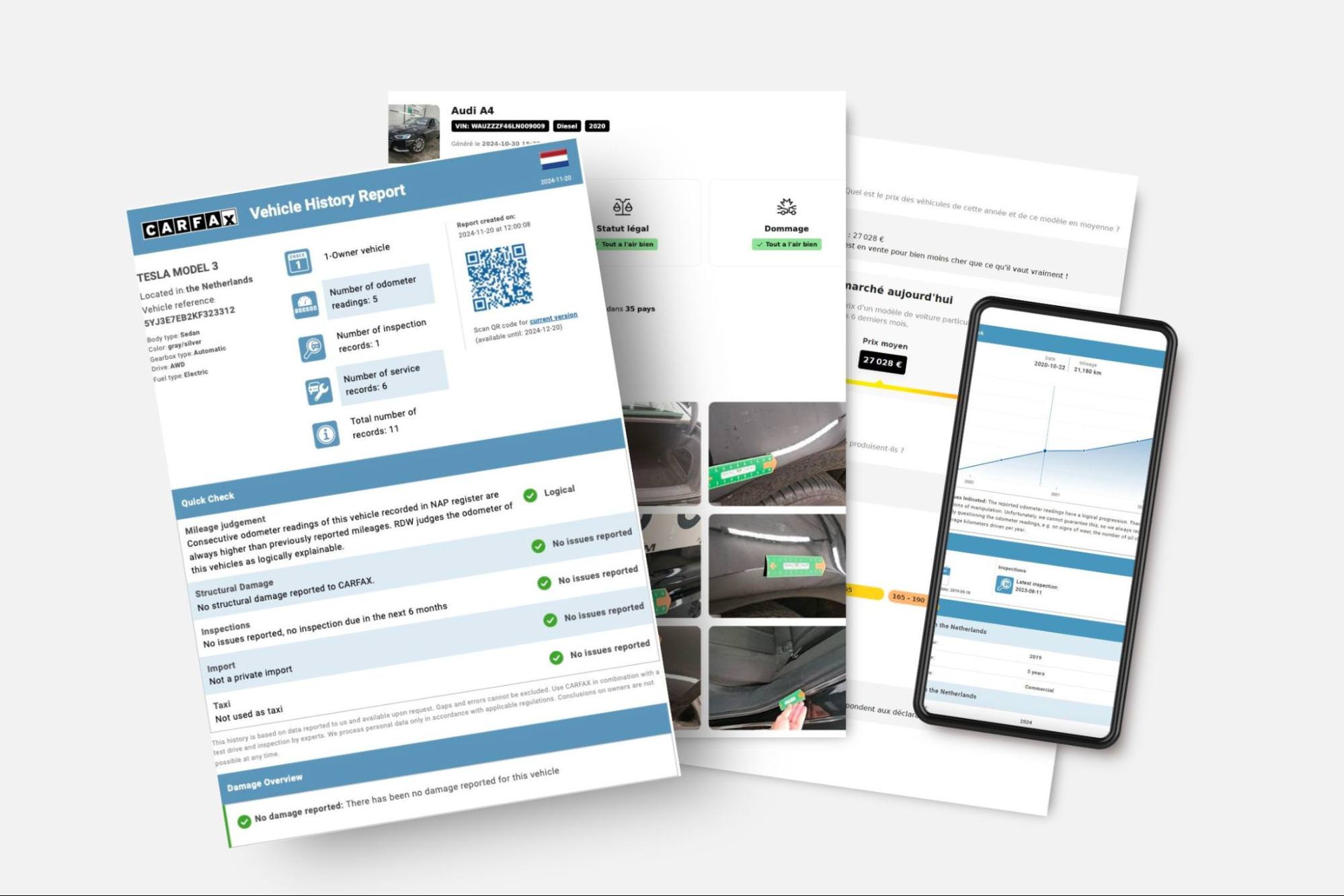
A VIN (Vehicle Identification Number) report is a detailed document that tells you about a car’s history, specifications, and condition.
You can easily get a VIN report using a VIN checker tool, and the 17-character VIN is the only thing you need to get started.
As a used car trader looking to buy reliable, inspected vehicles, VIN reports are crucial for you to make informed decisions, avoid risks in online auctions, and maximize profits.
So, let’s see what sorts of information you can expect from a VIN report.
What can you expect from VIN reports?
The precise structure of details differs from provider to provider. However, most VIN reports cover the following elements:
-
Technical information: Fuel type, engine characteristics, equipment, original manufacturing details.
-
Ownership history: How many owners the car has had and whether it was a private, business, or rental vehicle.
-
Accident history: Whether the car was involved in accidents.
-
Mileage records: Verified odometer readings to prevent odometer fraud.
-
Service history: Shows you how well the car was cared for.
-
Theft reports: Whether the car is flagged as stolen in any country.
Keep in mind that VIN checkers don’t inspect cars themselves. Instead, report providers check thousands of databases and records to gather the details about the vehicle.
Still, having all this information in one report saves you time and effort, so it’s always better to pay for a comprehensive report than to risk missing important details.
What should car traders look for in VIN reports?
When private buyers get a VIN report for the car they’re interested in, they often focus on things like accident history or mileage to ensure they’re buying a reliable car. But car traders approach VIN reports even more strategically.
For traders, the key is using the information to assess market value and identify potential profit opportunities, as well as spot any red flags that might impact resale or refurbishment costs.
Traders often prioritize:
-
Damage history: Helps you assess if repairs are needed and estimate refurbishment costs.
-
Country of origin: Some vehicles are more desirable in certain markets due to taxes, import rules, or brand perception.
-
Previous ownership type: Whether the car was part of a fleet, a taxi, or privately owned can influence its resale value.
-
Optional extras and features: Things like heated seats, premium audio, or advanced safety features can add significant value.
Each of these elements can increase or decrease the car’s resale value, so make sure you analyze VIN reports thoroughly to maximize your opportunities.
Let’s buy a VIN report for vehicles from eCarsTrade!
You’ve got the theory part down, and now it’s time to see what VIN reports look like in practice.
Let’s say you’re eying some cars on eCarsTrade to stock your used car dealership. You’ve bought two VIN reports: one from CarVertical, and the other from CARFAX. Here’s what they reveal and how they compare.
Mileage records
For starters, both reports include odometer readings, as that’s probably the first thing people check when evaluating how much a car has been used.
CarVertical provides a clear timeline chart that makes it easy to spot irregularities over time. There’s also a comparison between the car’s actual mileage and the typical mileage for this model, helping you quickly identify any discrepancies.
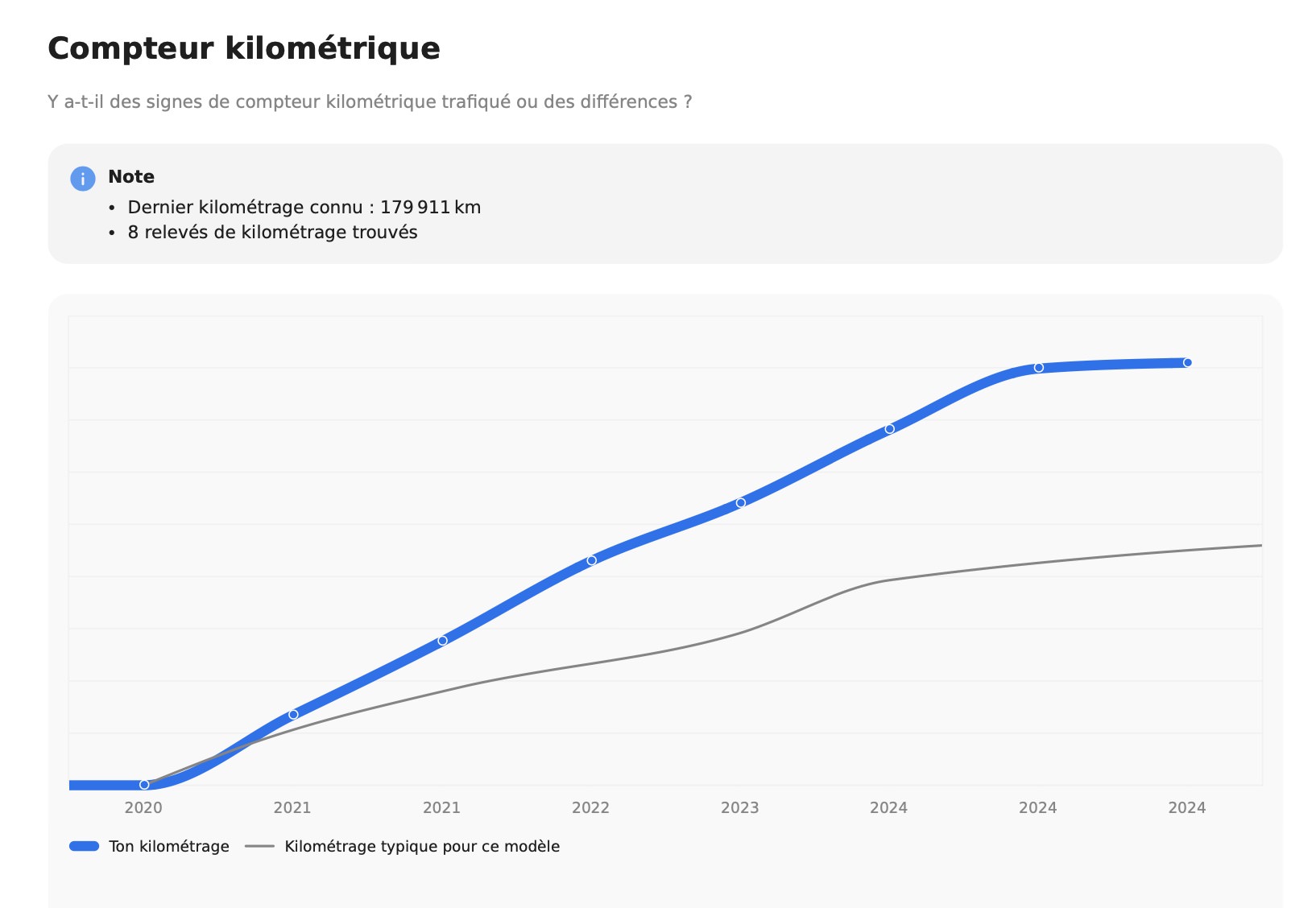
CARFAX, on the other hand, offers a simpler, less visual version of odometer readings.
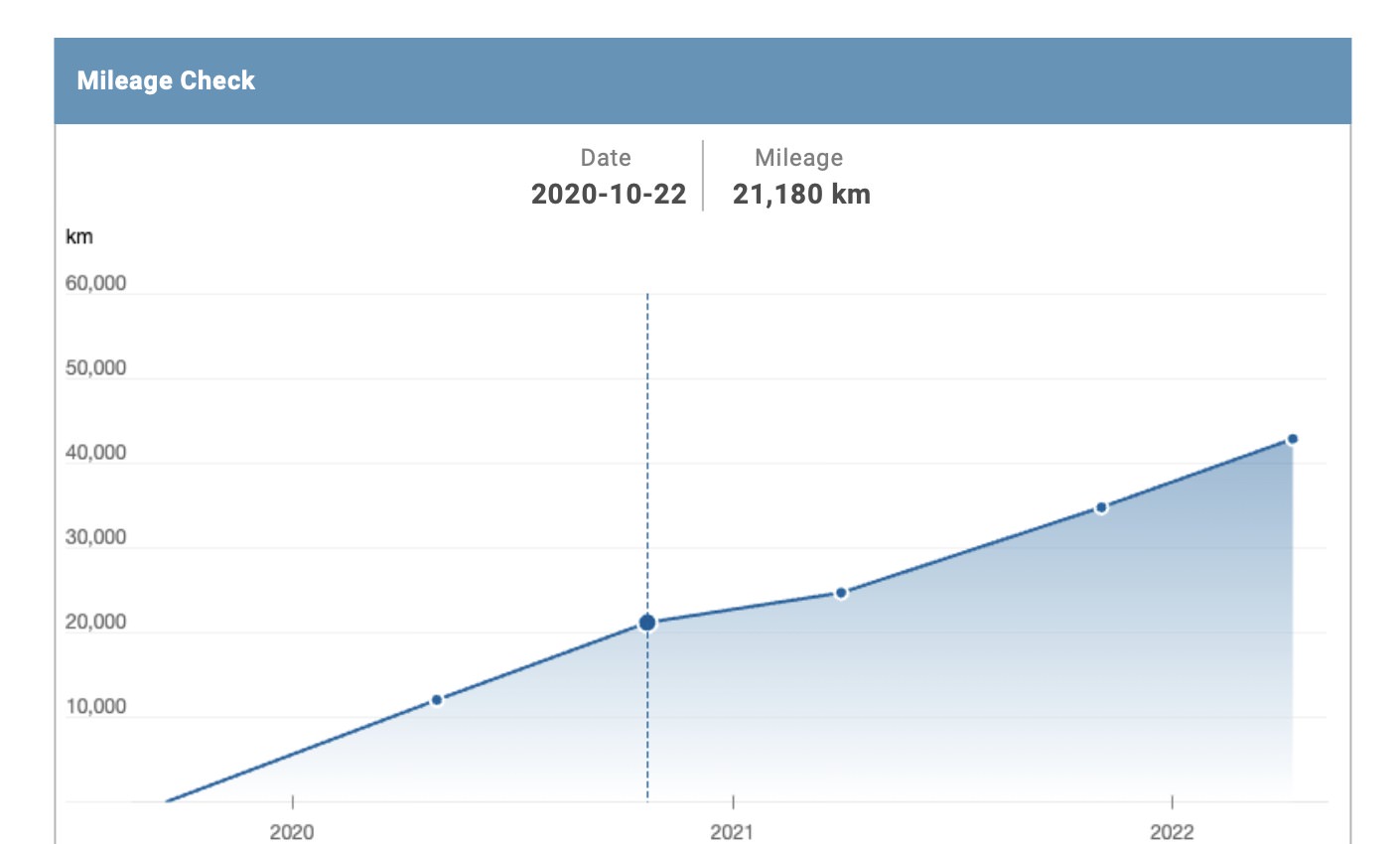
Besides mileage charts, both reports provide tables with an overview of workshop visits, showing when and at what mileage the car was serviced.
Damage history
If you’re buying cars for parts or refurbishing, damages won’t be a deal breaker. But if you’re looking to resell cars quickly, then you need to ensure that any past damage is minimal or properly repaired.
CarVertical has a visual representation of damage locations. In this case, there were no damages, so the report clearly highlights a “no damage found” status.
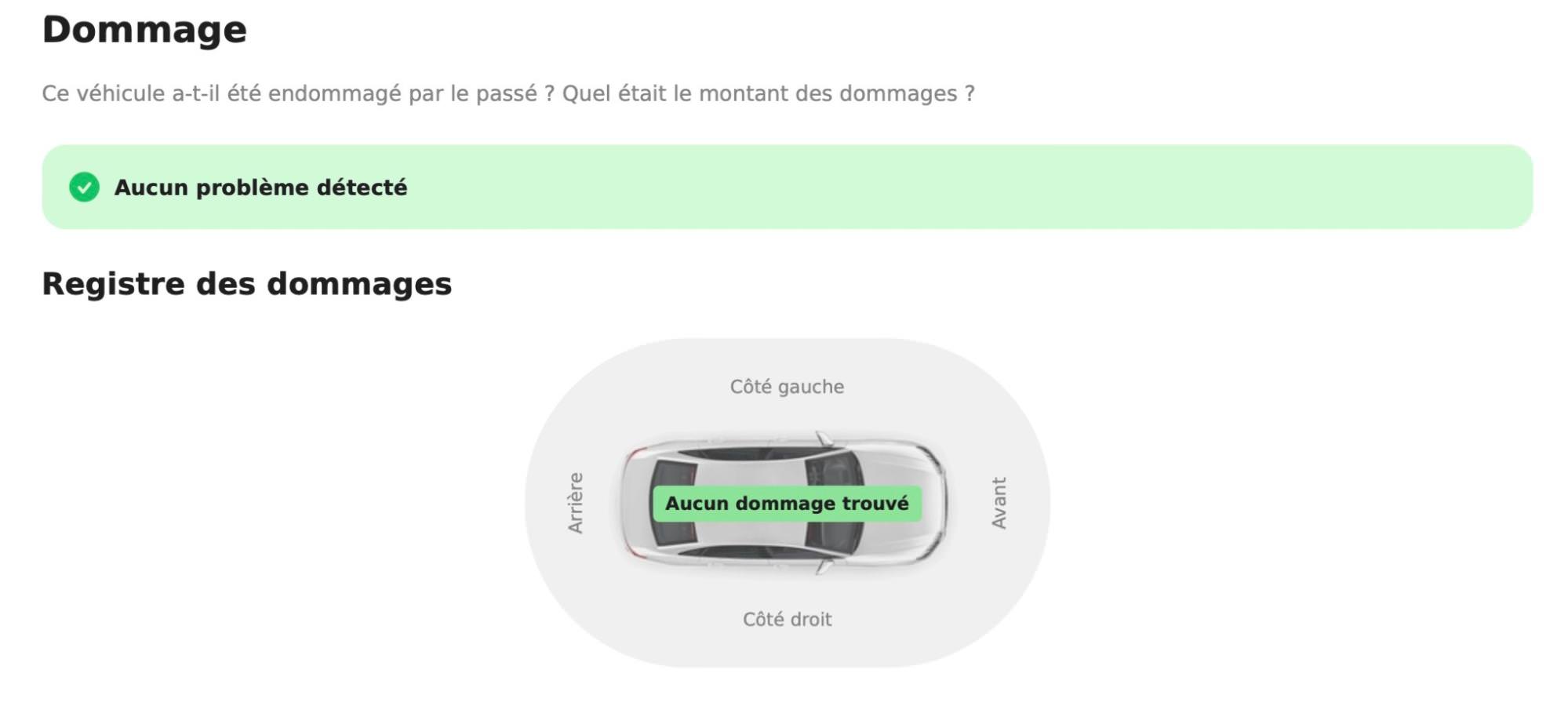
However, if there were damages, the report would show a diagram similar to the one below.
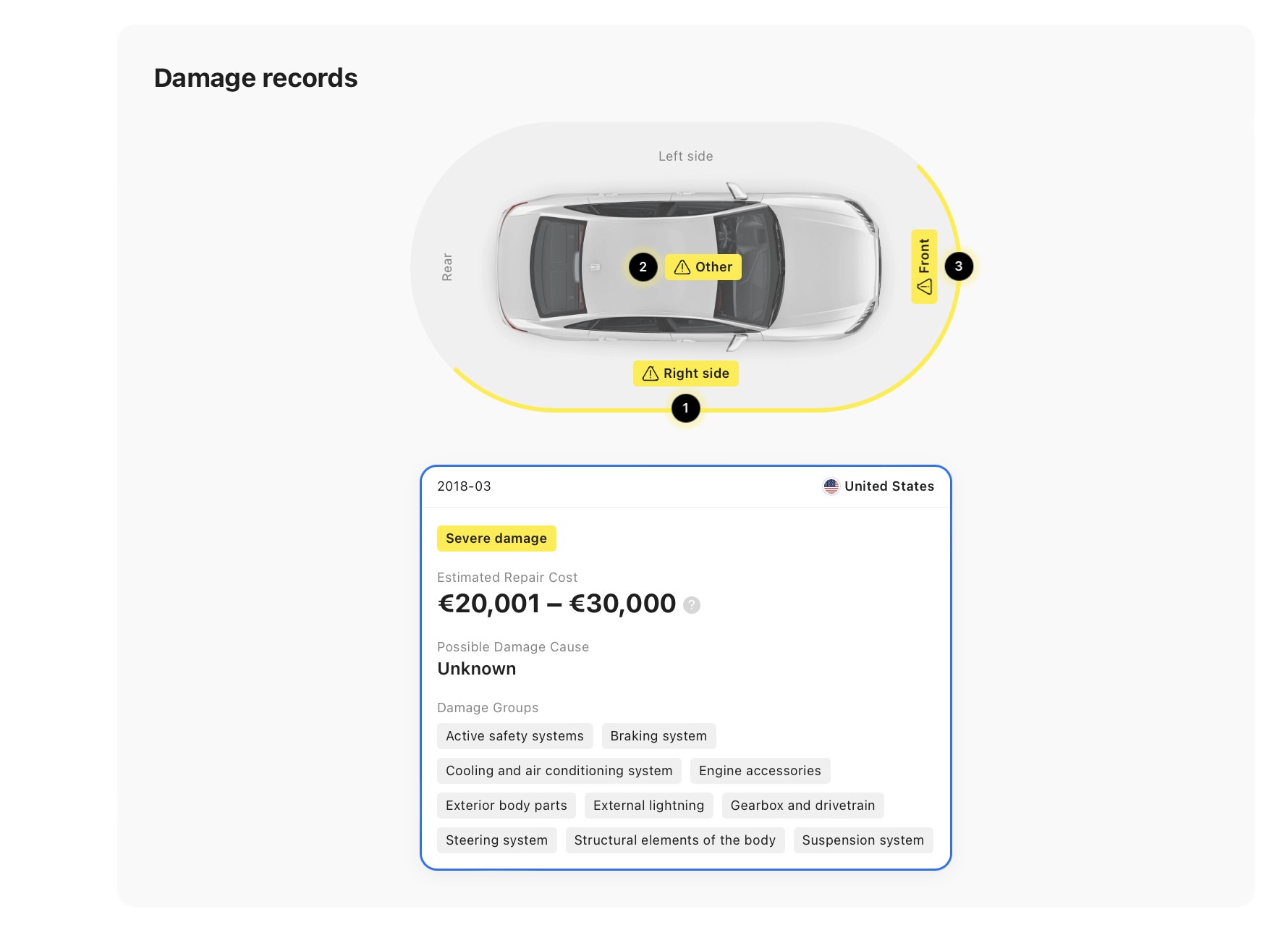
The report also shows an estimate of repair costs, along with details about the type of damage.
CARFAX has a simplified approach to providing the same information—it gives a simple text-based confirmation of “No structural damage reported”. Any damages would be neatly listed in the “Damage overview” table.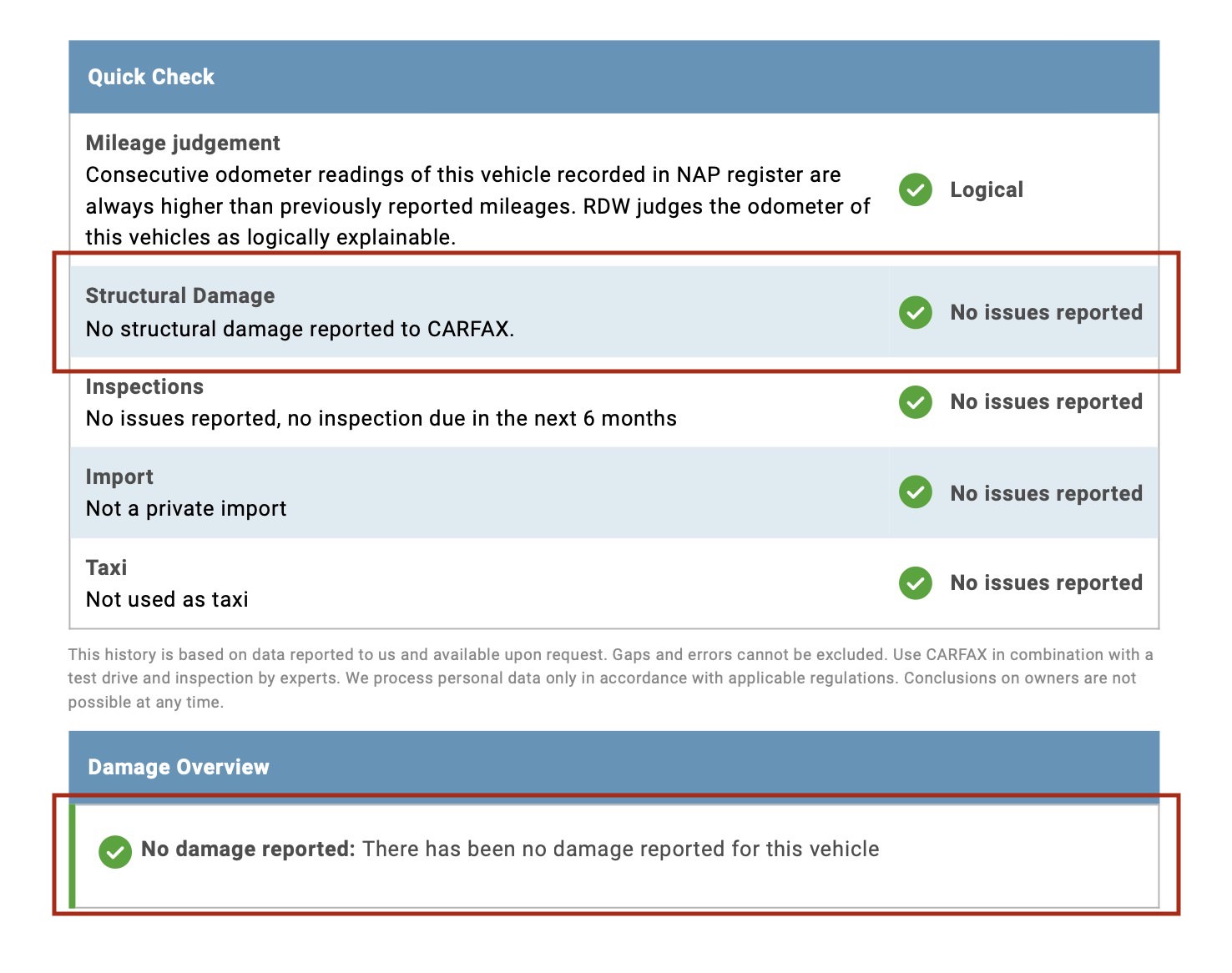
While the two reports differ in style, both make it easy to verify the damage history.
Ownership details
CARFAX provides yet another helpful table that summarizes the car’s ownership. You can see if the vehicle was used commercially or privately and when it changed hands.

Service records and inspections
Whenever you’re buying used cars, you should check how well they’ve been maintained to avoid unexpected repair costs. That’s why we provide service history overviews in most of the car listings available on eCarsTrade, whether they’re sold through auctions or fixed-price deals.
The CARFAX report also excels here, with a detailed list of service and maintenance events.
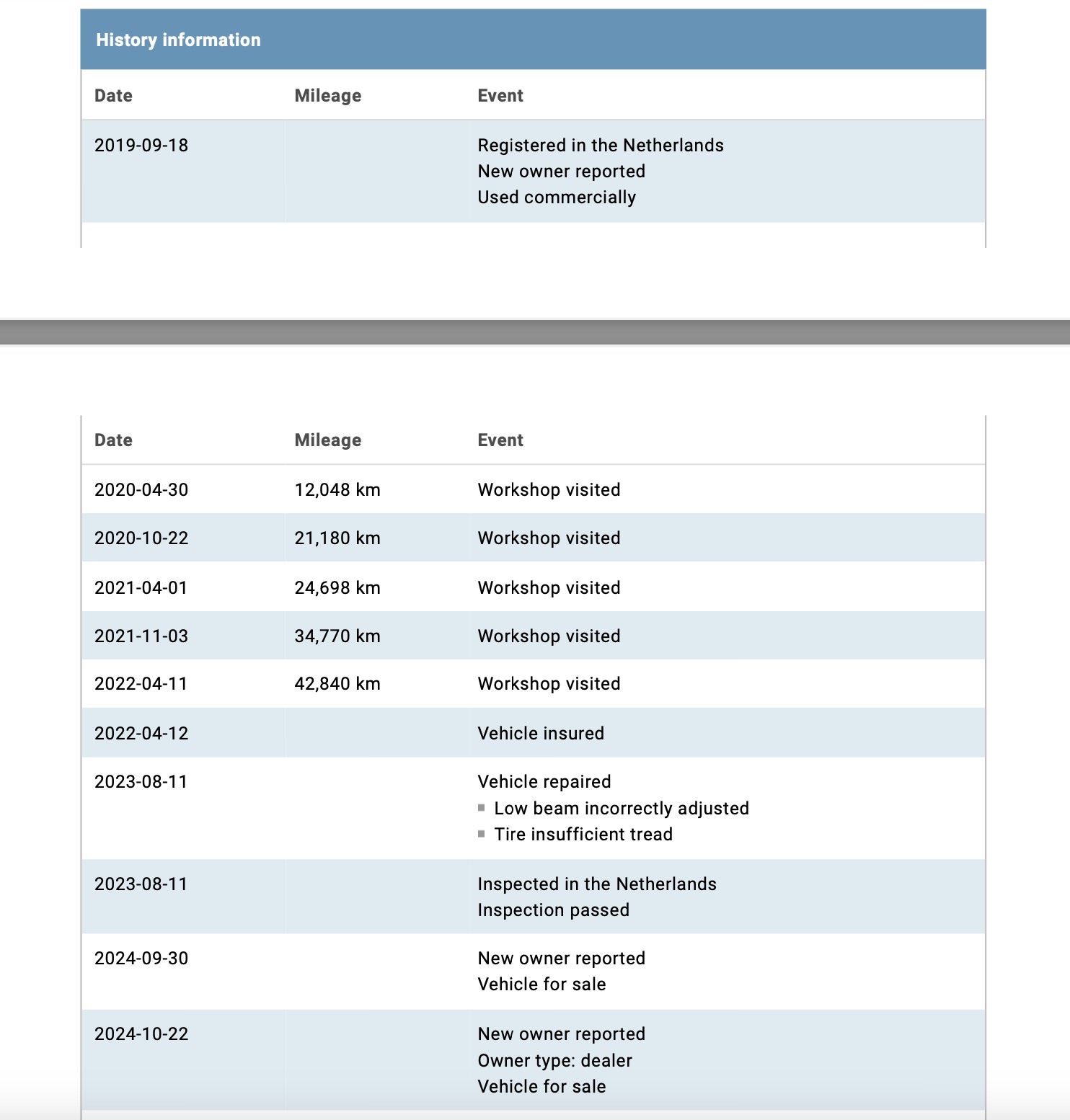
The super helpful thing is that you don’t just get service dates—you also see the mileage at each visit. This helps you track the car’s maintenance over time and quickly spot any gaps or unusual patterns.
Car photos
As a used car dealer, you’re already aware of the role that great car photos play in increasing sales.
CarVertical also knows how much buyers appreciate seeing a car’s condition upfront, so their VIN reports include plenty of photos of the car’s exterior, interior, and any damage points. This makes it easy to evaluate the car without seeing it in person.
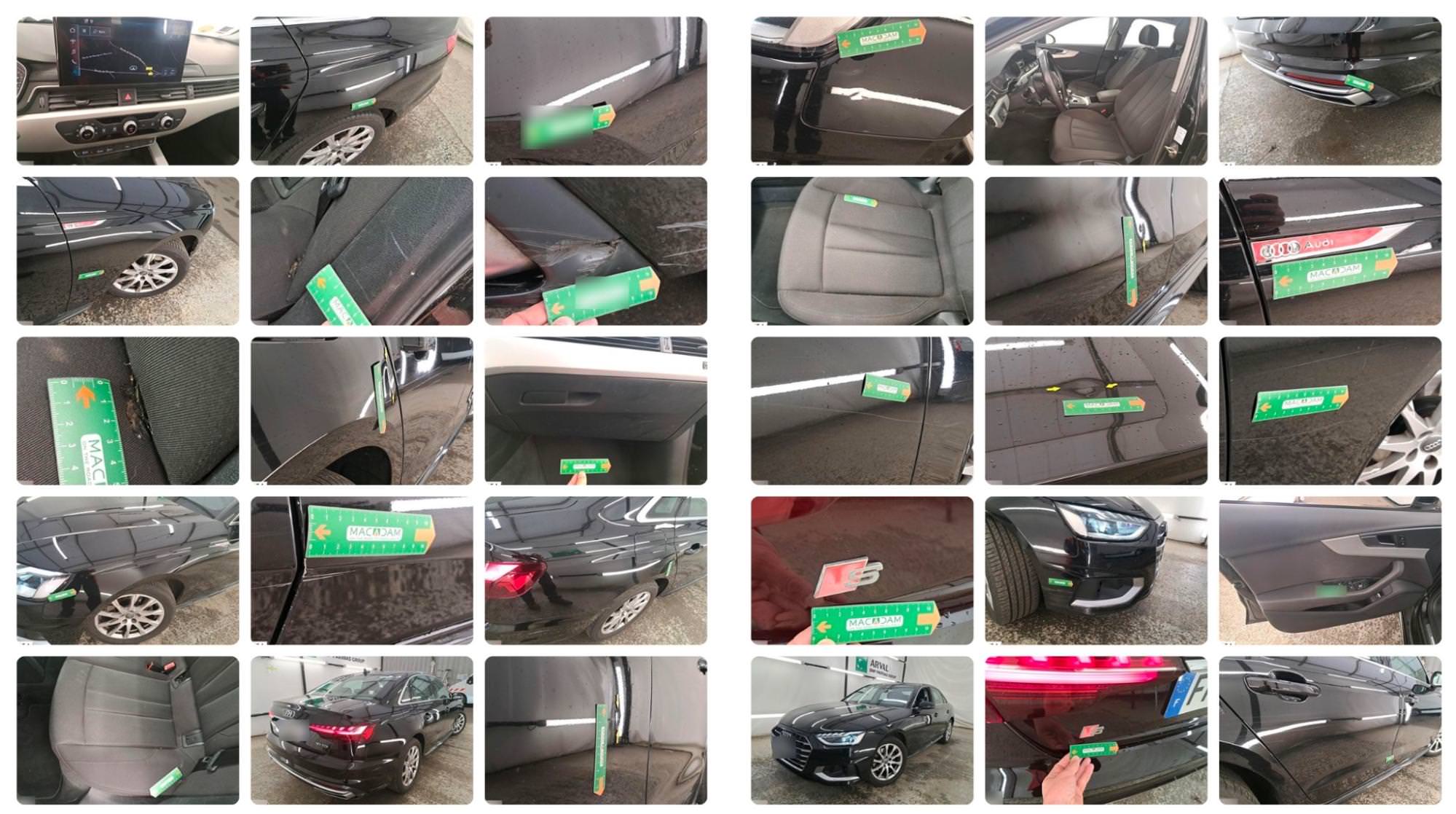
For instance, this particular report has as many as 58 photos!
They provide an extra layer of assurance, and you can use them to spot inconsistencies between the report details and the actual condition of the car.
Making the most of VIN reports
With just 17 characters, you can learn so much about a vehicle’s history and condition. So, every time you’re sourcing cars for your dealership, remember that a good VIN report helps you spot opportunities and avoid costly mistakes.
Use the data to verify mileage, check for damages, and understand a car’s past before committing. Combine this with photos and service records to make confident, informed decisions.
All things considered, you should make buying VIN reports a regular part of your purchasing process!
Our extensive inventory includes various makes and models to suit all your needs, sourced directly from reputable European leasing companies, short-term rental companies and dealerships:

